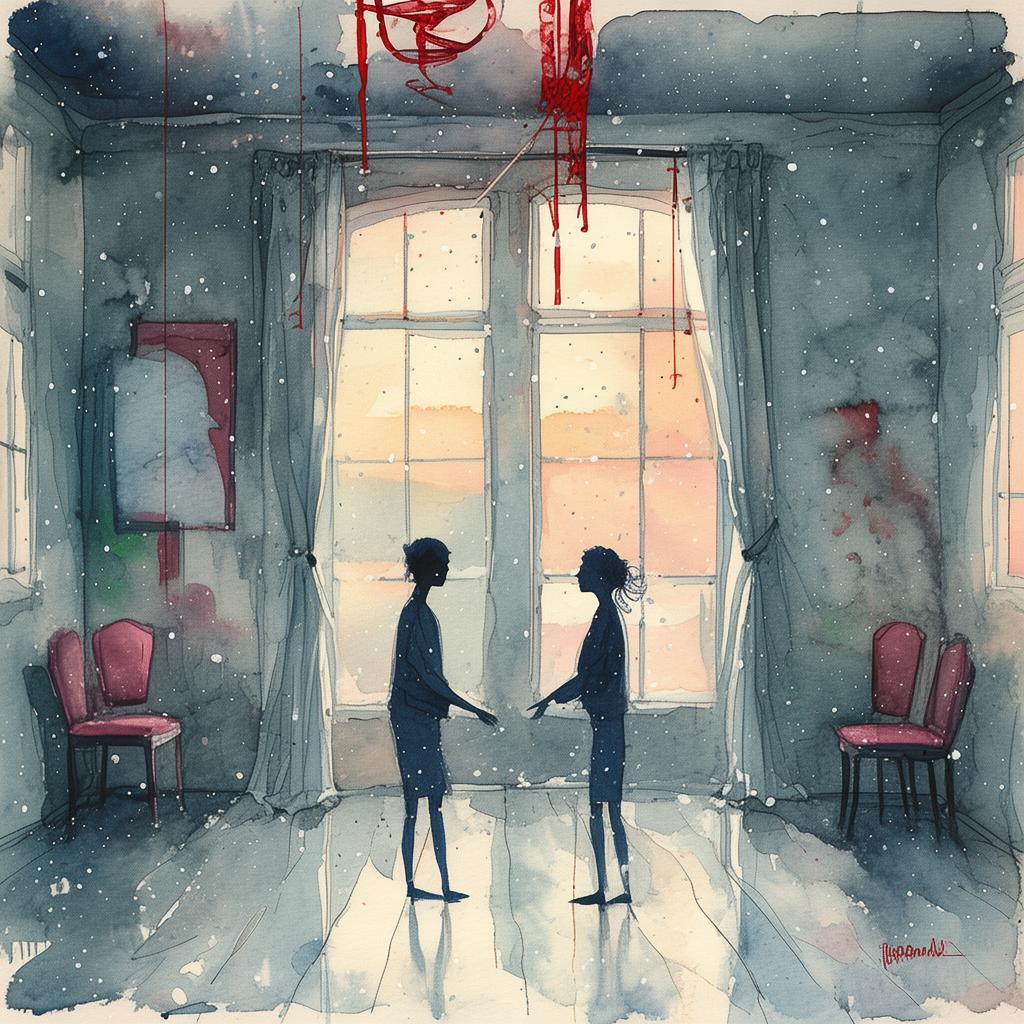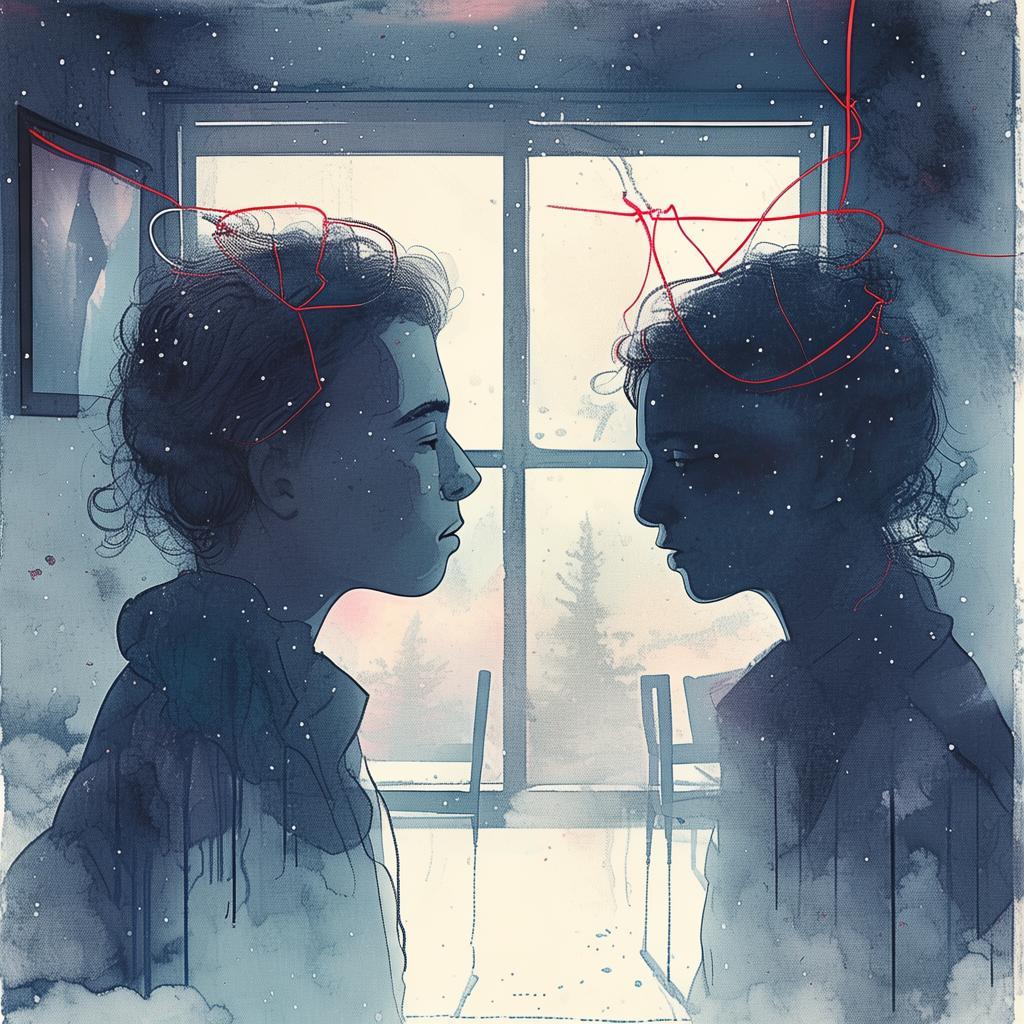Whispers of the Past: The Nazhu's Redemption
In the heart of the ancient Chinese empire, where the scent of incense mingled with the whispers of history, there lived a young man named Ling. His beauty was unparalleled, his mind sharp, and his spirit resilient. But in a land where the line between the divine and the human was blurred, his fate was intertwined with the enigmatic Nazhu, a deity of the dead.
Ling was a scholar, a man of letters, but his heart yearned for something beyond the pages of his scrolls. He was drawn to the palace, not for its opulence, but for the chance to glimpse the face of the Nazhu, a being said to possess the power to grant eternal life. Little did he know that his fate was to become the Nazhu's redemption.
The Nazhu, in the form of a charismatic and enigmatic prince, was a figure of legend. His beauty was matched only by his cunning and his power. He was the ruler of a vast empire, but his heart was burdened by the weight of his throne. The Nazhu desired something forbidden: the love of a man, a love that could never be spoken of in public, for it was a love that could bring down an empire.
Their paths crossed in the shadowy corridors of the palace, where the scent of rose petals and the clink of porcelain filled the air. It was there that the Nazhu, in all his divine splendor, first noticed the young scholar. The Nazhu's gaze was as piercing as a falcon's, and it was in that moment that Ling's heart began to race with a forbidden passion.
The Nazhu was intrigued by the scholar's bravery and intelligence. He saw in Ling a kindred spirit, a soul that understood the weight of his own solitude. The prince, who had been a mere shadow of his former self, found solace in Ling's presence. They spoke of philosophy, of the stars, and of the fleeting nature of life. The connection was instant, and it was as if the two had known each other for lifetimes.
However, their love was a dangerous game. In a world where the slightest whisper could mean death, their secret affair was a ticking time bomb. The Nazhu's closest advisors, who were as cunning as they were loyal, saw the prince's affection for the scholar as a threat to their power. They plotted to destroy the Nazhu's empire, and they saw Ling as the key to their victory.
The Nazhu, caught between his duty and his love, knew that he had to act. He devised a plan to protect Ling, a plan that would require the sacrifice of his own life. He would become the Nazhu, the deity of the dead, and in doing so, he would ensure that Ling's name would live on forever.
The night of the grand ball, where the empire's most influential figures would gather, was the culmination of the Nazhu's plan. As the guests sipped on their wine and laughed, the Nazhu, now in his divine form, revealed his true nature. The crowd was frozen in terror, but Ling, true to his courage, stepped forward, embracing the Nazhu.

With a final, loving gaze, the Nazhu transformed into the deity, leaving behind a legacy that would echo through the ages. Ling, now the Nazhu's avatar, became the guardian of the empire, a ruler who was both human and divine.
In the end, their love was not a fleeting moment but a testament to the enduring power of the human spirit. The Nazhu's Redemption was not just a story of forbidden love, but a tale of sacrifice, redemption, and the triumph of the heart over the darkness.
As the empire flourished under Ling's rule, the legend of the Nazhu and the scholar spread far and wide. They became the stuff of legend, a reminder that even in the darkest of times, love could shine brightly and illuminate the path to redemption.
✨ Original Statement ✨
All articles published on this website (including but not limited to text, images, videos, and other content) are original or authorized for reposting and are protected by relevant laws. Without the explicit written permission of this website, no individual or organization may copy, modify, repost, or use the content for commercial purposes.
If you need to quote or cooperate, please contact this site for authorization. We reserve the right to pursue legal responsibility for any unauthorized use.
Hereby declared.









